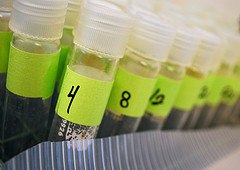
Drinking water in the United States is regulated by a law called the Safe Drinking Water Act. With this law in place, many homeowners wonder why water in the Carolinas still suffers from quality issues. So today we’re going to talk about what the Safe Drinking Water Act is and the limitations of the law when it comes to the quality of the water in your home.
What is the Safe Drinking Water Act?
The Safe Drinking Water Act is a law that was enacted in 1974 with the intention of ensuring the safety of public drinking water. The law put the EPA in charge of testing, monitoring and setting standards for levels of various common drinking water contaminants. Although the law was seen as a step in the right direction for improving the safety of drinking water, many people have criticized it for being outdated, not being strict enough and lacking proper enforcement.
What are the limitations of the Safe Drinking Water Act?
In 2009, the New York Times published a series of articles titled “Toxic Waters” about the growing problems related to drinking water contamination in the US. Some of the key findings of the series included:
- Between 2004 and 2009, more than 20 percent of the nation’s water treatment systems violated key provisions of the Safe Drinking Water Act.
- Fewer than 6 percent of the water systems that violated the Safe Drinking Water Act were ever fined or punished.
- More than 49 million people had been exposed to illegal concentrations of contaminants like arsenic, uranium and bacteria commonly often found in sewage.
- Only 91 contaminants are regulated by the Safe Drinking Water Act, though more than 60,000 chemicals are used within the United States.
Since that series was published, no amendments have been made to the Safe Drinking Water Act, and these problems still persist. In addition to the problems listed above, North and South Carolina homeowners should note that:
- The drinking water standards set by the Safe Drinking Water Act for some contaminants (including lead) are designed to match what is feasible for water treatment plants to meet, not what contaminant levels are safest to consume.
- The Safe Drinking Water Act does not regulate well water.
- Water testing for the enforcement of Safe Drinking Water Act standards occurs at the water treatment plants and does not take into account contamination that can occur as water travels through our country’s aging water systems to your home.
- Even with the Safe Drinking Water Act, the best way to ensure that your home’s water is safe to drink is to have it tested by a professional and install a water treatment system that addresses your water’s particular problems.
If you have any questions about what the Safe Drinking Water Act is, or if you’d like a water treatment system serviced or installed in your home, contact North Carolina Water Consultants, your North and South Carolina dealer of Hague water filters. We install water filters and water softeners all over the Carolinas, including towns like Casar, Mount Pleasant and Waxhaw, NC.
